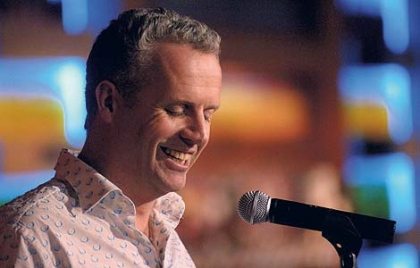The Origins of an Entrepreneur survey asked 370 of the country’s
successful entrepreneurs about their backgrounds, education,
motivations and personal characteristics.
“Adversity forged my independence and was a major influence over my drive for success in my career,” says Glen Manchester, CEO of Thunderhead
Businesswoman Laura Tenison says under-achieving at school made her want to prove her teachers wrong and she set up her acclaimed baby wear brand JoJoMaman Bébé after suffering a severe car crash in France. Bar Hewlett says beating cancer gave her the determination to set up weight loss business LighterLife. TenUK founder Alex Cheatle cites the breakdown of his parents’ marriage when he was three: “A government minister once asked me how we can boost entrepreneurship in this country,” he says. “My flippant response was, ‘More misfortune’.”
Rod Aldridge, founder of the FTSE 100 company Capita Group and now Chair of the Aldridge Foundation which conducted the survey, said he was spurred on to succeed by being determined to put behind him the stigma of underachieving at school. He and the majority of entrepreneurs in the survey believe that education is the key to unlocking entrepreneurial talent in young people.
“It is admirable that so many entrepreneurs have overcome personal adversity to lead incredibly successful lives. It’s a lesson to us all that anything is possible – but we can’t take this resilience for granted,” says Rod Aldridge. “There are many young entrepreneurs who are struggling in this recession and need experienced business people to give them mentoring support to help them adapt and survive. And if we want to come out of this recession with a pool of entrepreneurial talent, we need to instil resilience and an entrepreneurial mindset among school children.”
This call is backed by the majority of entrepreneurs surveyed who say the best way to encourage young entrepreneurs is to provide business mentors ( 21%), teach entrepreneurship at school ( 20%) using real business examples and to change cultural attitudes to failure (17%).
Will King, founder of King of Shaves says: “In America, failure is a big part of the entrepreneurial experience. In the UK, it’s frowned upon. There needs to be room for trial and error.”
This survey finding was strongly supported by comments in the online survey given by entrepreneurs who chose to remain anonymous:
“Adversity provides a phenomenal motivator as an entrepreneur sees that nothing other than their own efforts will get their circumstances changed.”
“Seeing family and friends struggle with money motivated me to not want to be in that position. Also, the fact that various people telling me what I cannot do or achieve, usually based on their own fear of failure, made me more inclined to prove them wrong.”
“I had a council estate upbringing and it’s driven me to ensure the next generation of my family don’t.”
“In my own circumstances deprivation, debt, and violence all drove me to make a better life for myself and my own family.”
“Adversity creates passion, determination and dedication.”


